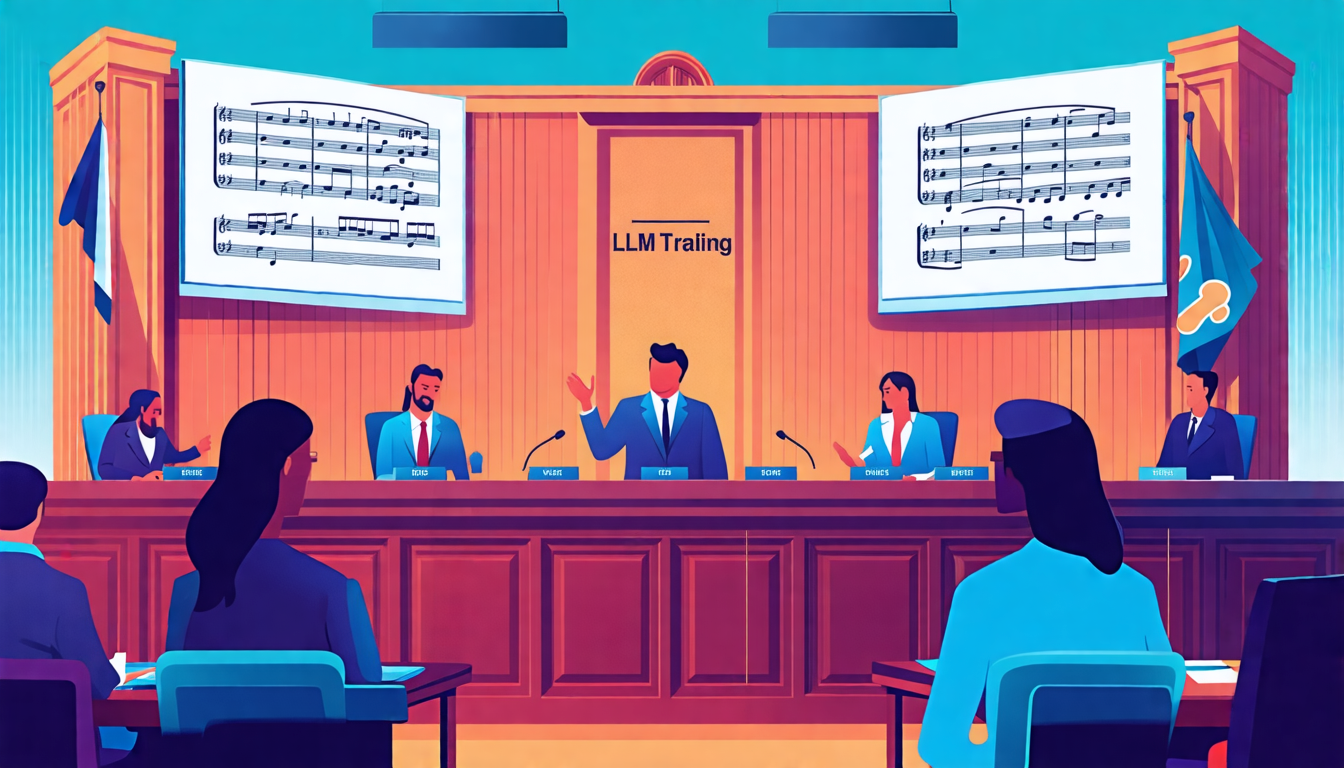In a recent legal development, AI research firm Anthropic has issued a comprehensive response to an injunction request made by a coalition of music publishers. These publishers claim that Anthropic’s use of copyrighted materials to train its Large Language Models (LLMs) constitutes a violation of their intellectual property rights and have sought legal action to halt such practices. However, Anthropic staunchly defends their methodology, asserting that their activities fall under the doctrine of ‘fair use’ and have not caused the publishers irreparable harm.
The Basis of the Injunction Request
The music publishers contend that Anthropic’s LLM training methods involve the unauthorized use of copyrighted lyrics and compositions. According to their complaint, such practices not only infringe upon their exclusive rights to distribute and reproduce these works but also potentially devalue the inherent worth of their intellectual properties. Based on these arguments, they have requested an injunction to prevent Anthropic from using their works in future training regimens.
Anthropic’s Defense
In their rebuttal, Anthropic presents a multifaceted defense that challenges the music publishers’ claims on several fronts. Central to their argument is the assertion that the use of copyrighted materials in LLM training qualifies as ‘fair use.’ They argue that their activities are transformative, utilizing the contents not for reproduction or distribution but for the purpose of developing innovative AI technologies capable of understanding and generating human-like text.
Anthropic contends that fair use encompasses the utilization of copyrighted works for purposes such as criticism, comment, news reporting, teaching, scholarship, and research. They argue that their training activities align more closely with teaching and research, transformative in nature rather than exploitative.
Questioning ‘Irreparable Harm’
Anthropic further disputes the music publishers’ claim of ‘irreparable harm.’ They argue that the publishers have not demonstrated concrete evidence that the training of LLMs has tangibly impacted their revenue or market value. Additionally, Anthropic suggests that the nature of AI training involves analyzing extensive datasets without redistributing or directly reproducing the original materials, thus safeguarding the original works from market substitution or loss of unique value.
Implications for the AI and Music Industries
This case has significant implications for both the Artificial Intelligence and music industries. For the AI sector, the outcome could set a precedent for the extent to which copyrighted materials can be employed for training models under the ‘fair use’ provision. Conversely, for the music industry, the case underscores growing concerns over how emergent technologies could impact intellectual property rights.
There is also a broader cultural and legal debate at play about how AI technologies should intersect with existing copyright frameworks. As AI continues to advance, establishing clear guidelines and precedents on such usage will be critical to balancing innovation with the protection of creative works.
Future Proceedings
The battle between Anthropic and the music publishers is likely to continue, as both sides present strong arguments and substantial stakes. The final decision in this case will be closely watched by legal experts, industry professionals, and policymakers who are grappling with the implications of AI on copyrights and intellectual property.
Ultimately, the resolution of this dispute may require not just judicial intervention but also potential legislative actions to definitively address the nuances of fair use in the age of artificial intelligence.
As the legal proceedings move forward, stakeholders from across the AI and creative sectors will be keenly observing the developments. The outcome may well shape the trajectory of AI research methodology and how it harmonizes with the rights of content creators across various domains.
You can make a difference by making a donation, supporting our staff’s Original Content!

